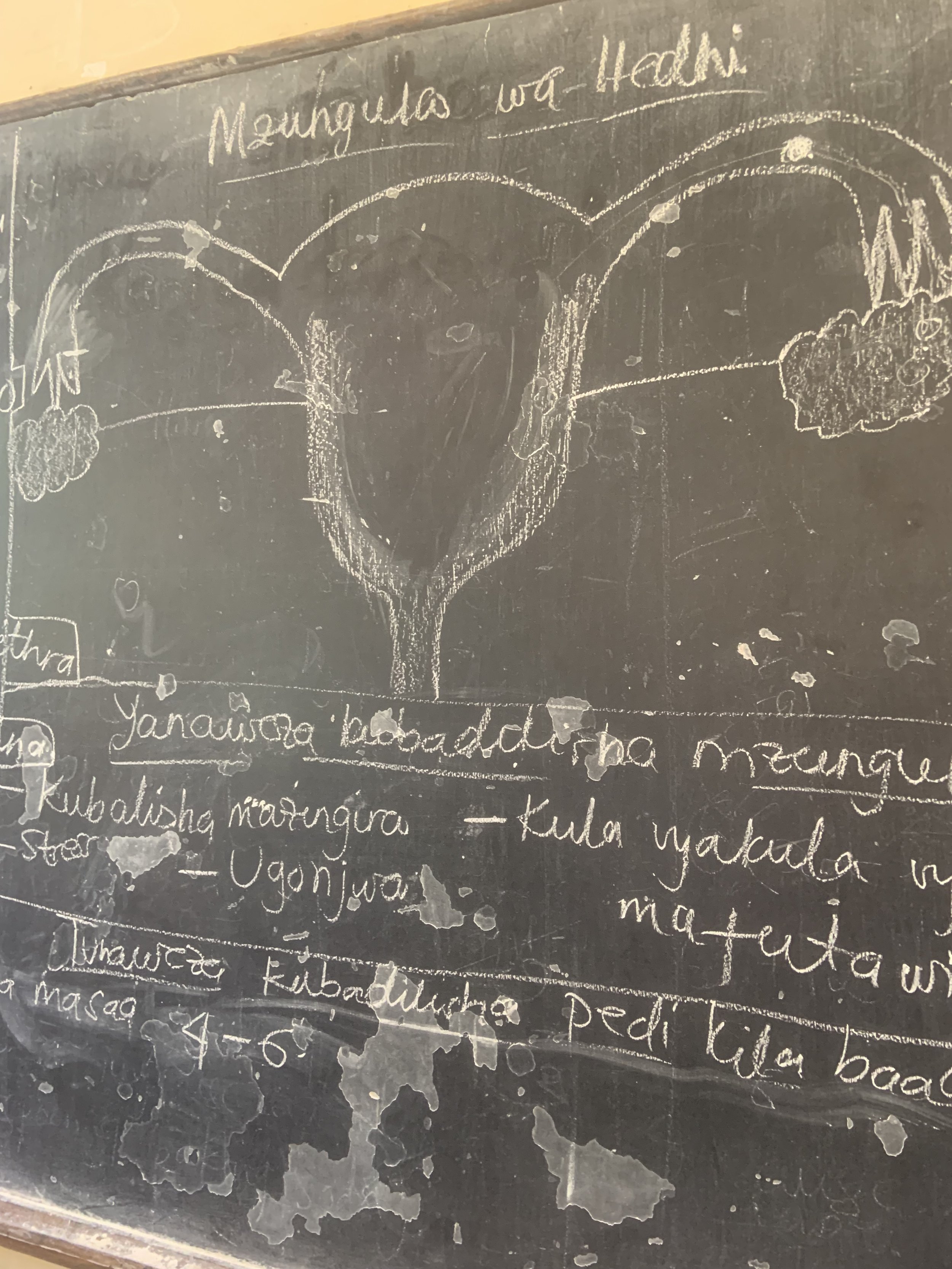The Importance of Addressing Period Poverty
At WAJAMAMA, we are committed to empowering young people to become instrumental in working towards a future where all people have equal opportunity to thrive. We recently had the pleasure of hosting a 15-yo intern named Giulia Momdjian from England and here’s what she learned from shadowing our team during our Well-Girl program’s outreach day.
“I learned a lot during my time in Zanzibar with WAJAMAMA; a holistic health care center focused on family and women’s health. My experience helped me better understand the importance of informing young women about their bodies. During the week I spent at WAJAMAMA, the team let me tag along on an outreach day to a secondary school, where they would lead a discussion about menstrual health and hygiene management.
I was surprised to learn that many young girls are unaware that periods exist as a whole, some may be frightened by the idea, and many of those who have hit puberty don’t know how to manage their cycles in a healthy way. By informing girls about menstruation, they can better understand what is happening to their bodies and learn how to manage their periods safely and hygienically. Menstruation is a normal physiological process and should not be viewed negatively. It is important to equip girls with tools to feel empowered, understood, and confident about their bodies and this can be accomplished through education and having facilitated discussions about periods.”
“Absence from school is another key factor that should be acknowledged. It is not uncommon for girls to miss school in Zanzibar due to a lack of knowledge about menstruation and also not having access to menstrual pads. This subsequently causes girls to be left behind academically. Teaching girls how to safely navigate their periods will help ensure that girls do not miss school nor fall behind in their studies.
It is critical to approach the subject with sensitivity and respect, and provide girls with the knowledge, materials and support they need to handle their periods confidently and with dignity. This is where WAJAMAMA comes to kindly help.They provide schools with guidance on this matter and help equip girls with knowledge about their bodies as well as menstrual hygiene kits. They also demonstrated how to use reusable and disposable pads and how to safely dispose of them or clean them.”
“What I really loved about my outreach experience with WAJAMAMA is that the session was commenced with a mindfulness activity to help bring the students’ attention to the ‘present moment’. The students all had smiles on their faces and were eager to learn. The team then taught the students about the female’s anatomy, which the students clearly found to be helpful. Everything was written with chalk on chalkboards. The differences and similarities with puberty between boys and girls were also highlighted”
Moreover, the team demonstrated to the young girls how to use pads and how efficient reusable pads are. The girls were encouraged to ask questions throughout and to end it all, the girls had to do a fun pop up quiz. They were then each given a pouch of reusable pads, which are meant to last them for a year. They were so delighted and content that they asked if we could take pictures all together!
WAJAMAMA is extremely keen to help girls understand their bodies and makes them feel at ease. I really appreciated the opportunity of getting to know how the organization manages to support diverse groups of girls. I met incredible and genuine people throughout the week and I can’t wait to be back as soon as I get another chance to do so! I certainly don't want this to be a one-time experience. I am also looking forward to learning more about the Zanzibari culture. Most of all, I really hope to assist WAJAMAMA in achieving its mission in the future as I definitely it is a great initiative.”
— Giulia Momdjian, Year 10




